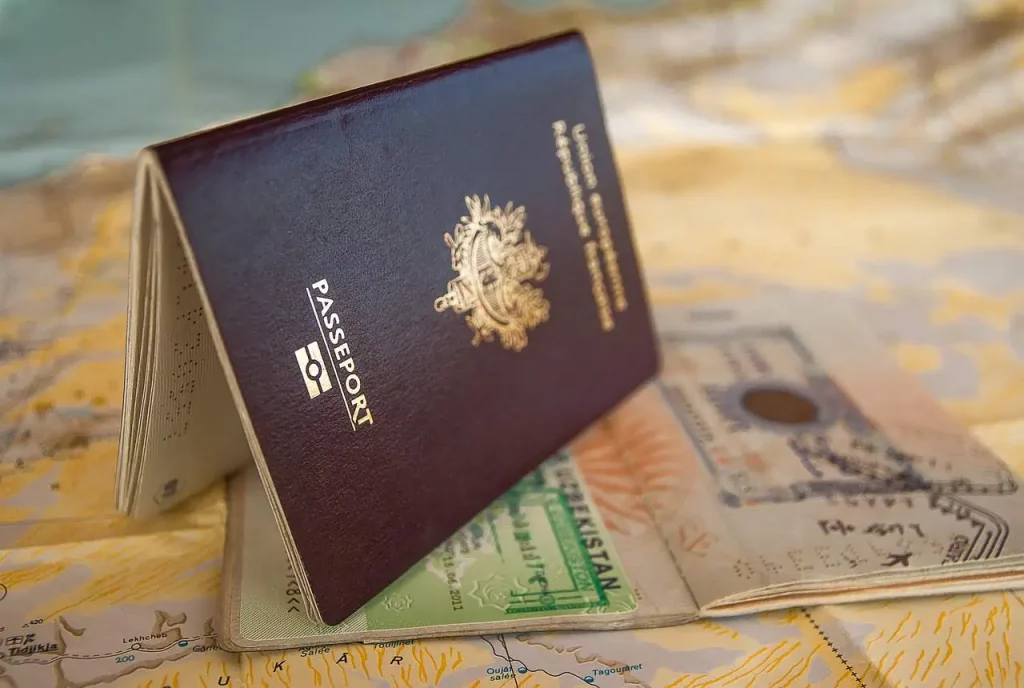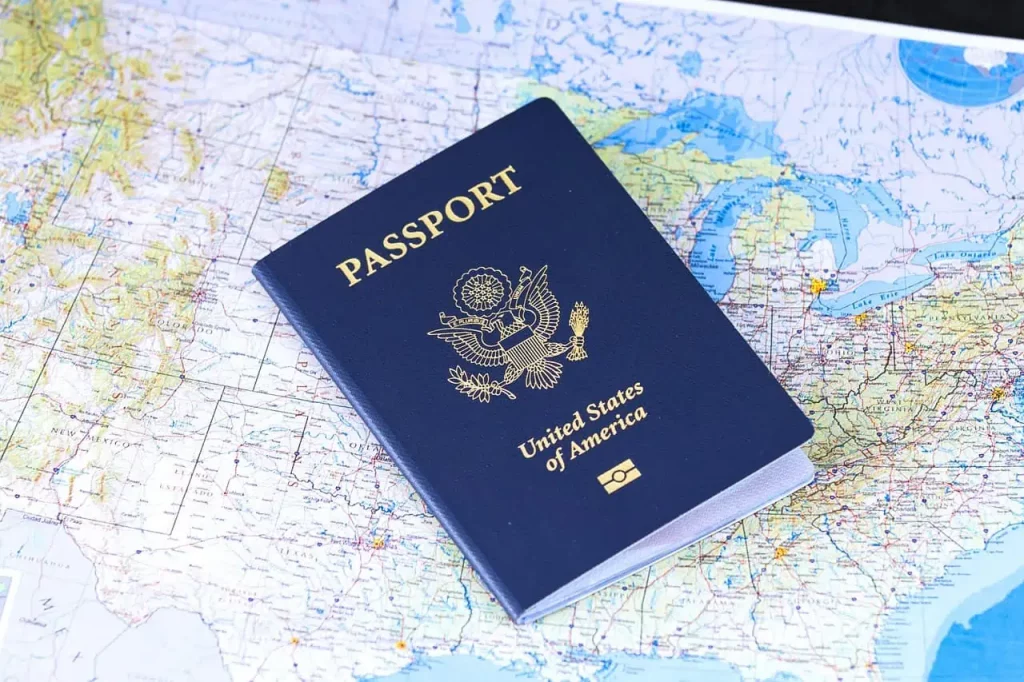If you have been a victim of certain criminal acts while in the United States, you may be eligible for a U visa. The U visa is a nonimmigrant visa that provides protection and benefits to victims of crimes and allows them to stay and work legally in the country. In this article, we will explore the U visa program, its requirements, and how it can benefit you as a victim. For expert guidance and assistance throughout the U visa application process, consult the best immigration attorney in El Paso, Texas.
What is the U Visa?
The U Visa is a non-immigrant visa designed to provide protection and immigration benefits to victims of certain crimes who have suffered substantial physical or mental abuse and are willing to assist law, immigration attorney in El Paso, Texas enforcement in the investigation or prosecution of those crimes. Created under the Victims of Trafficking and Violence Protection Act (VTVPA) in 2000, the U Visa aims to encourage victims to come forward and cooperate with authorities without fear of deportation.
Key features of the U Visa include:
- Protection for victims: The U Visa offers protection to victims of crimes such as domestic violence, sexual assault, human trafficking, and other qualifying criminal activities. This protection extends to both the primary U Visa applicant and eligible family members.
- Legal status: Individuals granted U Visa status receive legal protection and are allowed to live and work in the United States for up to four years. This legal status is essential for victims to rebuild their lives and move forward after experiencing trauma.
- Cooperation with law enforcement: One of the central requirements for obtaining a U Visa is a victim’s willingness to assist law enforcement in the investigation and prosecution of the crime. This cooperation is demonstrated through the certification process, where a qualifying law enforcement agency confirms the victim’s assistance.
- Path to permanent residency: After three years of continuous U Visa status, individuals may be eligible to apply for lawful permanent residency (a green card). This provides victims with a more stable and long-term solution for residing in the United States.
- Derivative visas for family members: Certain family members of the primary U Visa applicant, including spouses, children, and in some cases, parents, may be eligible for derivative U Visas, offering them legal status and work authorization.
Understanding the nature of the U Visa is fundamental for victims seeking protection and individuals assisting them through the application process. The visa serves as a crucial tool in empowering victims, promoting cooperation with law enforcement, and fostering a safer environment for those who have experienced criminal victimization.

Eligibility criteria for the U Visa
To be eligible for the U Visa, individuals must meet specific criteria outlined by U.S. immigration attorney in El Paso, Texas. These eligibility requirements are designed to identify victims of qualifying criminal activities who have suffered significant harm and are willing to cooperate with law enforcement. Here are the key eligibility criteria for the U Visa:
- Victim of qualifying criminal activity:
- The applicant must be a victim of a qualifying criminal activity, including but not limited to domestic violence, sexual assault, human trafficking, and kidnapping.
- The crime must have occurred in the United States or violated U.S. laws.
- Suffered substantial physical or mental abuse:
- The applicant must have suffered substantial physical or mental abuse as a result of the criminal activity.
- This requirement aims to identify victims who have experienced severe harm, emphasizing the need for protection.
- Assistance to law enforcement:
- One of the primary purposes of the U Visa is to encourage victims to assist law enforcement in investigating and prosecuting the criminal activity.
- The applicant must be willing to cooperate with law enforcement agencies, providing information, testimony, or other assistance as needed.
- Certification from law enforcement:
- To demonstrate cooperation, the applicant must obtain a certification known as Form I-918, Supplement B, from a qualifying law enforcement agency.
- This certification confirms the victim’s assistance and cooperation in the investigation and prosecution of the crime.
- Admissibility:
- The applicant must meet the general admissibility requirements for entering the United States.
- While certain grounds of inadmissibility may be waived or overcome in the U Visa application process, meeting basic admissibility criteria is essential.
- Age:
- There is no specific age requirement for U Visa eligibility. Both adults and children may qualify if they meet the other criteria.
- Immediate family members:
- In some cases, certain family members of the primary U Visa applicant may also be eligible for derivative U Visas. This can include spouses, children, and, in some circumstances, parents.
- Approval of U Visa petition:
- After meeting the initial requirements and filing a U Visa petition (Form I-918), the applicant must await its approval by U.S. Citizenship and Immigration Services (USCIS). Once approved, U Visa status may be granted.
Understanding these eligibility criteria is crucial for potential U Visa applicants and those assisting them through the application process. Meeting these requirements is a significant step toward obtaining protection and legal status in the United States.

Benefits of the U Visa with immigration attorney in El Paso
The U Visa program offers several vital benefits to individuals who qualify, providing both protection and opportunities for a more stable life in the United States. Here’s a closer look at the key benefits of obtaining a U Visa:
- Legal status:
- One of the primary advantages of the U Visa is that it grants legal status to the recipient. This legal status allows individuals to live and work legally in the United States for up to four years.
- Work authorization:
- U Visa holders are eligible for employment authorization. This means they can work in the United States without the need for additional work permits or visas.
- Protection from deportation:
- While the U Visa is valid, recipients are generally protected from deportation or removal by U.S. immigration authorities. This provides a level of security and stability for U Visa holders and their families.
- Path to permanent residency:
- U Visa holders may be eligible to apply for lawful permanent residency (a green card) after three years of continuous U Visa status, provided they meet certain requirements. This opportunity is a crucial step toward achieving long-term stability in the United States.
- Derivative visas:
- Certain family members of the primary U Visa applicant may be eligible for derivative U Visas. This includes spouses, children, and, in some cases, parents. Derivative U Visa holders also receive legal status and work authorization.
- Access to public benefits:
- U Visa recipients may be eligible to receive certain public benefits, including health care, depending on their state of residence and federal regulations.
- Protection for victims:
- The U Visa program was specifically created to encourage victims of certain crimes to come forward and cooperate with law enforcement. By providing protection from deportation and legal status, it empowers victims to report crimes and assist in investigations without fear of immigration consequences.
- Work and live without fear:
- With a U Visa, individuals can live and work in the United States without the constant fear of deportation. This freedom allows U Visa holders to rebuild their lives and move forward after experiencing trauma.
- Access to services:
- U Visa holders may have access to services and resources that support their physical and mental well-being. This can include counseling and assistance tailored to victims of crime.
Understanding these benefits is crucial for individuals considering the U Visa program. It not only provides immediate relief and protection but also opens doors to a more secure and stable future in the United States.

Important information about the U Visa
Navigating the U Visa application process is a crucial step for individuals who have been victims of qualifying crimes and seek protection in the United States. The process involves several key steps, each essential for demonstrating eligibility and ensuring a thorough and accurate application. In this section, we’ll explore the significant components of the U Visa application process, providing insight into the specific requirements and considerations applicants need to be aware of.
| Application Process Step | Description |
|---|---|
| Obtaining Agency Certification Certificate | This certificate is obtained from a law enforcement agency, prosecutor’s office, or government agency to certify cooperation in the investigation or prosecution of the crime. It serves as a crucial document confirming the victim’s assistance to law enforcement. |
| Completion of Form I-918 | Form I-918 is the official application for the U Visa and must be completed accurately. This form collects essential information about the applicant, including details about the crime, the victim’s cooperation, and supporting documentation. It is a comprehensive form that requires attention to detail. |
| Inclusion of Eligible Family Members | U Visa applicants can include certain eligible family members on their application, such as a spouse and children under 21 years of age. This provision allows family members to benefit from the protection and legal status provided by the U Visa program. Applicants must provide necessary documentation for each family member included. |
| Waiting for a Decision | After submitting the application, applicants must patiently wait for the immigration authorities to review and respond to their application. The processing time can vary, and applicants should regularly check the status of their application. During this period, applicants should avoid engaging in activities that could negatively impact their eligibility. |
How to apply for a U Visa with immigration attorney in El Paso
The application process for a U Visa involves several steps, and understanding the process is essential for individuals who believe they qualify for this type of visa. Here’s a detailed overview of how to apply for a U Visa:
- Incident report:
- The first step is to report the qualifying criminal incident to immigration attorney in El Paso, Texas. To be eligible, individuals must be victims of a qualifying crime and have suffered substantial physical or mental abuse as a result. Cooperation with law enforcement is crucial, as they must certify eligibility by completing Form I-918, Supplement B, U Nonimmigrant Status Certification.
- Law enforcement certification:
- Law enforcement agencies play a critical role in the U Visa application process. They must certify eligibility by completing Form I-918, Supplement B. This certification confirms the victim’s cooperation in the investigation or prosecution of the criminal activity.
- Collect supporting documents:
- Gathering all required supporting documents is a vital step. These may include police reports, court documents, medical records, and any other evidence that supports the case. The goal is to demonstrate eligibility for the U Visa.
- Complete form I-918:
- The U Visa application is submitted using Form I-918, Petition for U Nonimmigrant Status. This form must be filled out accurately and thoroughly, providing all necessary information. Additionally, include the law enforcement certification (Form I-918, Supplement B) and supporting documents with the application.
- Filing fee:
- Applicants must pay the required filing fee for Form I-918. However, individuals facing financial constraints may request a fee waiver by submitting Form I-912, Request for Fee Waiver.
Navigating the U Visa application process can be complex, and it’s crucial to ensure that all requirements are met. Consulting with an experienced immigration attorney in El Paso, Texas, who specializes in U Visas, can significantly improve the chances of a successful application. An attorney can guide applicants through the process, help gather the necessary evidence, and ensure that the application is accurate and complete. This level of expertise is invaluable in navigating the intricate details of the U Visa application process.
Frequently asked questions for immigration attorney in El Paso (FAQs)
1.What crimes qualify for the U Visa?
Qualifying crimes include domestic violence, sexual assault, human trafficking, unlawful restraint, extortion, among others. Consult with an immigration attorney in El Paso, Texas to determine if your situation qualifies.
2. How long does it take to obtain a U Visa?
Processing time can vary but may take several years due to the annual limitation on the number of U visas available.
3. What additional benefits does the U Visa offer?
In addition to legal stay, the U Visa provides access to social services and the ability to apply for permanent residence after a certain period.
4. What is the annual cap on the number of U visas available, and how does it affect processing times?
The annual cap is 10,000 U visas. This may affect processing times, as many people may be applying for U visas in a given year.
5. What happens if my U Visa application is denied?
If your U Visa application is rejected, you will receive a notification with the reasons for the rejection. In some cases, you may have the opportunity to correct the problems and reapply in the future. An immigration attorney in El Paso, Texas can assist you in this process.
If you have been a victim of criminal acts in the United States, the U visa may provide you with protection, legal status, and the opportunity to rebuild your life. Consulting the best immigration attorney in El Paso, Texas, is crucial to ensure you navigate the U visa application process successfully. Their expertise and guidance can help you present a strong case and maximize your chances of obtaining a U visa.
